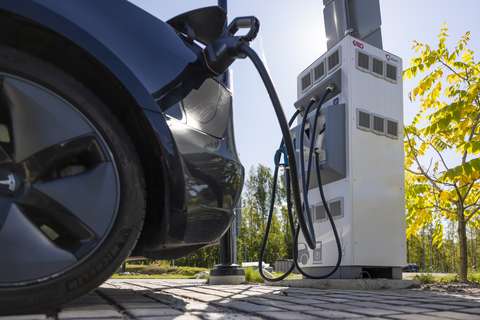New project expedites green transition and utilisation of digital solutions in Espoo
The Implementation Pathway for Environments that Accelerate Sustainable Growth (KETO) project develops cooperation between businesses, educational institutes and research organisations, and creates concrete development environments to promote the green transition and digitalisation.
The two-year EU-funded project promotes the goals of the Sustainable Growth Programme for Finland by strengthening private and public partnerships and developing the research infrastructure. The aim is to accelerate the green transition and the adoption of digital solutions in day-to-day activities.
The project led by the City of Espoo strives to resolve challenges related to urban development, traffic, energy and the circular economy through collaboration between Espoo, VTT, Aalto University, Omnia and partner companies. “More than ever before, the project highlights how cities, research organisations, educational institutes, businesses and the general public can contribute to the transition towards more sustainable daily life and a resolution to climate change,” says Project Manager Mari Päätalo.
“The green transition and efforts to bolster sustainable growth provide Finnish companies and research organisations with significant opportunities on the global markets. That said, the challenges at hand are extremely complex and can only be overcome through better solutions and closer cooperation,” adds Eveliina Grönroos, who leads the project at VTT.
New kinds of solutions require development and learning together
The KETO project will create three development environments for cities, companies, research organisations, educational institutes and local residents to jointly develop, implement and test new sustainable solutions. The co-creation conducted within the development environments aims for new services and products as well as diversified forms of business and employment. These new solutions can then be shared for use in other parts of Finland and abroad.
“The project promotes commercially viable solutions that help to achieve sustainable development goals on a global scale. In these efforts, trailblazing companies and the city’s willingness to try new things are key,” says Tatu Koljonen, who coordinates the project for Aalto.
The development environments are the Otaniemi-Keilaniemi research and development environment for energy and mobility solutions, the Kera area for clean and smart constructions, and the Kiviruukki agile test environment demonstrations related to the food system and the circular economy.
The project is divided into six parts, which are
- Management and impact
- Smart and clean city
- Digitalization opportunities
- Clean tech demonstrations
- Energy transition and electrification of transport
- Sustainable public procurement, citizen engagement and communication
The project will implement quickly-adoptable solutions and work on building the foundation for future jobs and competitive advantages. The impacts of the measures will be assessed from the perspectives of sustainable development, which include financial, ecological, social and cultural sustainability.
